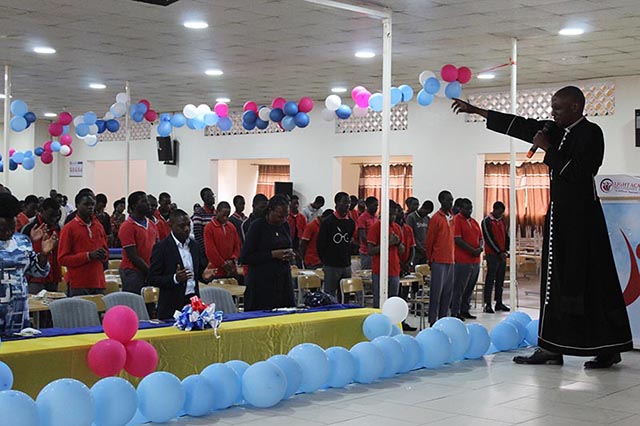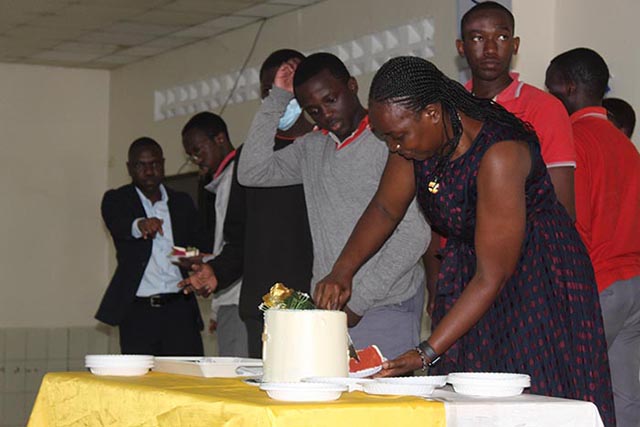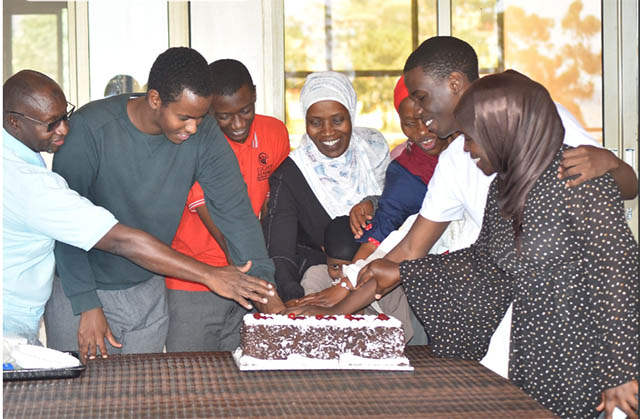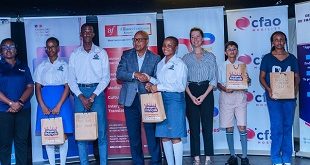
Milestone for Uganda’s Revised Lower Milestone for Uganda’s Revised Lower Secondary Curriculum as Inaugural Class Begins Examinationss Inaugural Class Begins Examinations
Kampala, Uganda | THE INDEPENDENT | Today marks a significant milestone as the inaugural class of the revised lower secondary curriculum begins its examinations, concluding a challenging five-year journey of trial and error for schools, teachers, and students alike. The curriculum, introduced in 2020, faced disruptions due to the COVID-19 pandemic, extending the typical duration for students to complete the Uganda Certificate of Education from four years to five years.
Last Friday, candidates received a briefing outlining the examination rules and guidelines. While this is the first round of assessments under the new curriculum, the final examination guidelines remain unchanged. According to the Uganda National Examinations Board (UNEB) timetable, candidates will begin their mathematics exam at 9:00 AM nationwide, weather permitting. Unlike previous years, the final examination is competence-based, with 80 percent of the total score derived from this exam and the remaining 20 percent coming from continuous assessment scores.
Jennifer Kalule, the UNEB spokesperson, confirmed that all examination materials were successfully delivered to storage centers, with the final shipment reaching Adjumani shortly after midnight. In Kampala, Nansana Municipality, and Moroto, headteachers arrived at storage centers by 6:30 AM to prepare for the distribution of exam materials.
At several schools visited, candidates were seen arriving, and examination rooms were already organized; however, examination officials had yet to arrive. In Moroto, the weather was clear and pleasant as police officers guarded the storage center, which supplies exams to the district’s five secondary schools. They plan to open the facility at 8:00 AM, while it was notably cloudy in Kampala.
In Luwero, the exams were delivered on Sunday under tight security and stored in UNEB containers at five police stations in the district: Kikyusa, Bamunanika, Bombo, Wobulenzi, and Luwero. The containers are guarded by military personnel and police officers. This morning, headteachers and UNEB supervisors began arriving to collect the first exam papers. The sky has cleared across the district after last night’s rain, and the exams will be distributed starting at 8:30 AM.



As the exams commence, UNEB has urged heads of centers and directors of private schools not to deny students access to examination venues due to outstanding school fees. Kalule emphasized that students should be allowed to sit for their exams, assuring that results will only be withheld until any financial obligations are met.
Another pressing concern for this year’s examinations is the Mpox pandemic, prompting schools to adhere to standard operating procedures issued by the Ministry of Health and Education. In addition to the candidates registered under the new lower secondary curriculum, some students will be sitting for examinations under the old curriculum.
A total of 379,748 candidates have registered for both the new and old curriculum examinations, set to take place at 4,168 centers. Among them, 10,147 candidates are sitting for the transitional examination based on the old curriculum, while 369,601 are pioneers of the new curriculum.


Of the transitional candidates, 54.7% are female and 45.3% are male. For the new lower secondary curriculum, 50.8% of the candidates are female and 49.2% are male. Additionally, 138,502 candidates (36.4%) are funded by the government under the Universal Secondary Education (USE) Programme, an increase from last year’s 114,200 government-sponsored candidates.
The number of privately sponsored candidates stands at 241,246. Among the candidates, 825 learners are Special Needs Education (SNE) candidates, with 38 sitting for the transitional examination. Access arrangements have been made for all SNE candidates to receive the necessary support for their needs.
Wishing all candidates success in their exams #UCE2024 pic.twitter.com/EiO8CN6xED
— Uganda National Examinations Board (@UNEB_UG) October 14, 2024
UCE New Lower lower Curriculum timetable #UCE2024 pic.twitter.com/LaC5zpUyvo
— Uganda National Examinations Board (@UNEB_UG) October 11, 2024
 The Independent Uganda: You get the Truth we Pay the Price
The Independent Uganda: You get the Truth we Pay the Price


